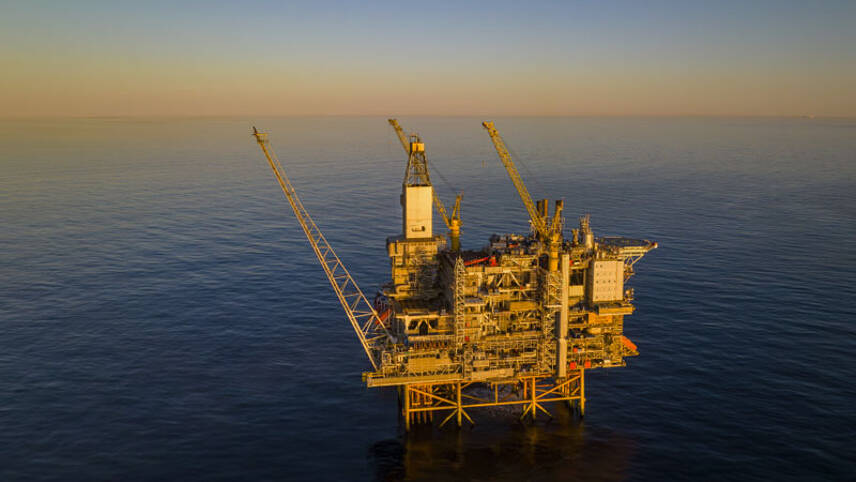Register for free and continue reading
Join our growing army of changemakers and get unlimited access to our premium content

Pictured: Platform operations in the Grane oil field in the North Sea. Image C: Equinor
The UK Government and North Sea Transition Authority (NSTA) confirmed the offering of 24 licences late on Wednesday (31 January). Companies including BP, Equinor and Shell are now a step closer to expanding their operations in this area, with the average time between licencing and first production standing at around five years.
NSTA staff “will work alongside the licencees to help bring them to production as quickly as possible”, the Authority stated.
The licences have been offered as part of the UK’s 33rd licencing round, which opened to applications in October 2022 during Liz Truss’s short stint as UK Prime Minister. The round closed to applications in January 2023 after attracting 115 bids from 76 companies.
“This latest batch brings total offers so far to 51, with more to come once the appropriate environmental checks are complete,” said the NSTA in a statement.
The statement talks up the “important” role British oil and gas extraction can play in “decarbonising domestic production” and “cutting” the UK’s greenhouse gas emissions.
This is partly due to industry-wide targets to cut operational emissions 25% by 2027, against a 2018 baseline. Omitted from these targets are the emissions generated from the end-use of extracted fuels, which make up the bulk of the sector’s overall climate footprint.
Moreover, the NSTA earlier this week issued a release confirming that it had received 1,200 reports of new technologies being implemented by the sector during 2023, stating that “accelerating the transition to net-zero” was a key aim of many of these projects.
Innovations included electrified technologies, autonomous underwater technologies and more efficient aerial drone monitoring.
An email with this story was sent to edie less than 36 hours before the new licencing offers were announced.
‘Grossly irresponsible’
Claims that new oil and gas will accelerate the UK’s delivery of its 2050 net-zero target and interim, legally binding carbon budgets have been strongly rebuked by green economy experts. The Government’s own Climate Change Committee has also cautioned against this approach.
The Grantham Research Institute on Climate Change and the Environment’s policy and communications director Bob Ward said the new licencing will likely negatively impact the UK’s emissions trajectory by “undermining the confidence of investors in alternatives to fossil fuels and reducing our competitiveness in the new sustainable industries”.
Ward also emphasised the message that could be sent internationally, calling the UK’s approach “grossly irresponsible” given that it signed on to the COP28 agreement for a global transition away from fossil fuels in Dubai in December.
This point was raised by Conservative MP Alok Sharma in Parliament this month, through the lens of his experience as COP26 President.
Sharma said: “I do not believe, and it pains me to say this, that this Bill will advance that [COP28] commitment to transition away from fossil fuels. I also do not believe that those climate-vulnerable nations will think this Bill is consistent with the pledge that we and every other nation present made in Dubai.”
Sharma was the only Conservative MP to abstain from a vote on progressing the Offshore Petroleum Licencing Bill. Several other Tory MPs voiced concerns about specific points of the Bill’s design but voted it through in the hopes of tabling amendments in the future, which would place tougher climate stress tests on projects.


But, lest we forget, it is not all about cutting emissions, or promoting “net zero”; it is about making money.
Harsh, but true!